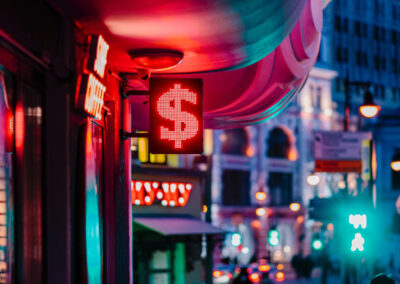Ron Conway, a well-known American venture capitalist, once said ‘I think for technology and innovation we have to ignore politics.’
Technology is a clear driver for ingenuity and innovation. Politics, on the other hand, is where intrigue, personal agendas, and the pursuit of power by any means necessary conflate to create a turbulent sea of neverending strife. When the two cross over, results are not always good.
Technology has often been implicated in political scandals. In 1971, a Xerox machine became ground zero for the Pentagon Papers affair that would have grave repercussions for the Nixon Administration. (The scandal would, indirectly, contribute to Nixon’s resignation following Watergate.) In Russia, political technology is a euphemism for election rigging. And the 2016 US election was marred by allegations of foreign interference through social media platforms.
Besides, technological devices have also had a positive influence on politics. Data analytics enables political strategists to obtain more accurate information about voter behaviour. Through this, they can mount more effective political campaigns, for example.
Into the political stage now jump non-fungible tokens (NFTs) and blockchain. This article explores the potential applications of digital tokens in the political ecosphere, focusing on fundraising and exclusive NFT-led events.
Fundraising in the age of blockchain
Fundraising is a vital tool for any political party intending to become a serious contender in any democratic election. But the political spectrum is, few would deny, a murky pond teeming with shady operatives. Such often resort to morally questionable tactics to gain the upper hand on their opponents. And running deep beneath this darkened surface is a layer of political donors and lobbyists who stake absurd amounts of wealth to push their agenda forward. The so-called dark money is the engine that moves the levers of power. Transparency and accountability are anathemas to all this.
The solution to this issue is complex. Often, those involved in such fundraising schemes have little desire for any solution to be found. Preserving the status quo -and the cash flow- tends to override any moral concerns.
In August 2021, NFTs found their way into the political arena when Scott Jensen, a Republican gubernatorial candidate for Minnesota, issued a series of NFTs to support its campaign.
Jensen released two NFTS, with a run of 25,000 each, and a price tag of $5 per NFT. The proceedings would support his campaign for Governor. By purchasing these items, the buyer would also get access to extra perks, such as meeting Jensen in person.
Democrats are not far behind in the NFT race. Early in October, a group of fundraisers for the Democratic party launched a series of politically-themed NFTs through Front Row, an NFT marketplace. The NFTs themselves were digital representations of people from the Texas Democratic Party. Specifically, the group of more than 50 Democratic lawmakers who had fled the State of Texas in an attempt to block a vote restriction bill put forward by the Republican party. Each NFT was priced at $250. The buyer would be considered a ‘donor’ to the party, with the actual platform -Front Row- taking a fee.
Both in Jensen and the Texas examples, there would be a price limitation of $5,800 to conform to existing campaign financing laws. (Political action committees -PACs- and party committees are not subject to the same guidelines, and that’s where ‘dark money’ reigns supreme.)
The use of NFTs turns these partisan fundraising efforts into interesting experiments. While limited in scope, they certainly offer a glimpse into what might become part of future political campaigns, both in the United States and elsewhere.
NFT-only political events, and beyond
Grassroots movements are essential to foment democratic principles in the community. These organisations promote participation, engagement, and inclusiveness, and help drive voter turnout. Members meet regularly in church halls, conference rooms in hotels, and even in pubs, to discuss current matters, etc.
A proposed use case for NFT in the political ambit is the celebration of ‘NFT-only’ conferences and other events. These could only be attended by members of any chapter of local or national grassroots groups who hold a scannable NFT. The tokens could unlock perks for the holder, such as meeting a particular speaker (such as the Jenssen NFTs), digital goodies, merchandise, etc. At the time of writing, there is no known political event adhering to this NFT-led initiative. Hence the 2022 VeeCon event will only be open to those who own a VeeFriend NFT.
Conclusion
In the grand scheme of things, NFTs remain a relatively nascent technology. They have only become a thing in 2021, in the wake of the now infamous Beeple NFT sale. Throughout this year, we have seen NFTs enter the popular lexicon and more and more mainstream commercial ventures dipping their toes into this fascinating Pandora’s Box. In 2022, American retail giant Macy’s auctioned off a range of NFTs based on its iconic Thanksgiving Day parade balloons. Comic book publisher Marvel has released several rounds of comic book-themed NFTs. This alone represents a constellation of possibilities.
NFTs for the political stage remain in a ‘try-before-you-buy’ phase, so to speak. But even though the road ahead remains somewhat hazy, the foundations for a larger NFT sphere of influence have been laid in politics and elsewhere.




